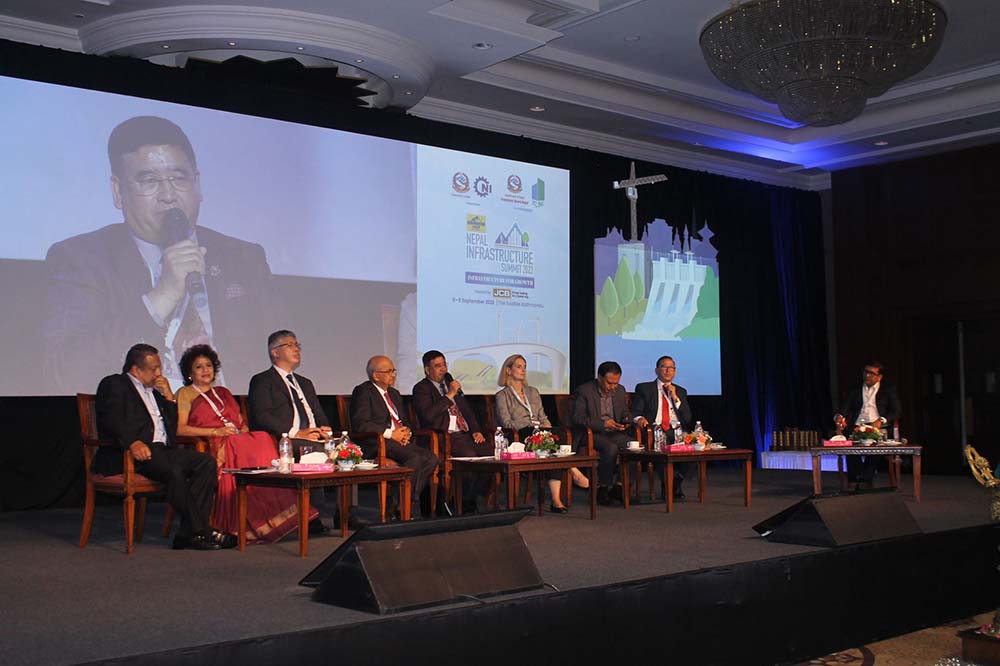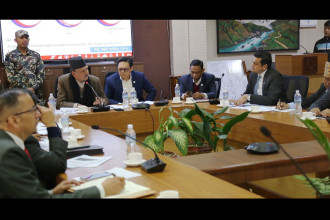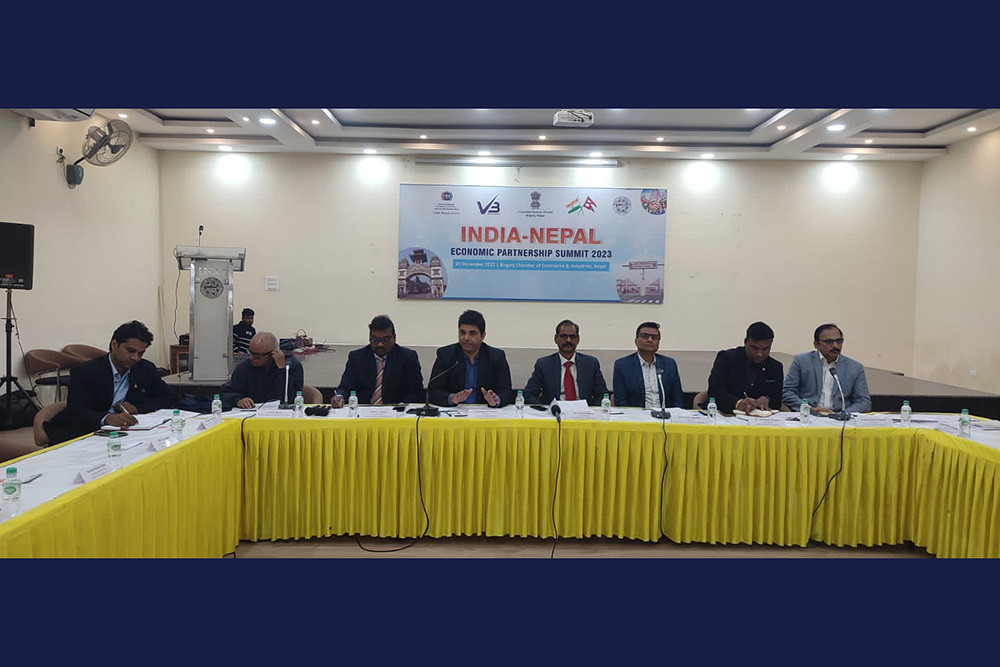
KATHMANDU: Speakers participating in the Fourth Infrastructure Summit jointly organised by the Ministry of Physical Infrastructure and Transport (MoPIT) and the Confederation of Nepalese Industries (CNI) emphasized the urgent need for exporting energy, agricultural and tourism products of the country. They said that there is good potential in regional network operation for the economic strengthening of the country.
Tourism Minister Jeevan Ram Shrestha said it is not easy to enhance development without connectivity and informed that it is necessary for agriculture, water resources and tourism sectors. Air, water, land and rail networks are important. Minister Shrestha stressed the importance of regional connectivity as well as internal connectivity for strengthening the overall economy, and in cooperation with neighbouring countries.
He said the government has reached agreements with 40 countries to conduct two-way air flights and has also started preparations to operate flights to America and Russia. He said discussions with India are underway to make Mahendranagar, Nepalgunj and Bhairahawa airports operational as entry points. He said an initiative has been undertaken to make Nepal a tourist destination for the whole 12 months.
Rajat Nag, representative of the Board of Directors Partnership for Transparency, said that most of the countries in the South Asian region have been increasing investment in the expansion of infrastructure. He said border areas of Nepal need to be flexible for regional connectivity.
"There is great potential in regional trade. Currently, there is a lack of multi-modal transport towards infrastructure. It is necessary to strengthen roadways and waterways. 70% of goods are transported by road," Nag said.
He said 750 trucks in the Indian border area and 350 trucks in Bangladesh border are being inspected on daily basis.
Regional connectivity is essential for Nepal and transportation of cargo vehicles to the countries connected to it by land routes should be made easier, said Cecil Fruman, Director, Regional Integration and Engagement in the South Asia Region (SAR), World Bank. The World Bank is currently providing financial support in the development of roads, energy and technology, border infrastructure, aviation, waterways, digitalisation, climate change, she informed.
She said the bank has planned to spend amounts for the ease of movement between Nepal and Bangladesh. The bank has financed the expenditure of $226 billion dollars from 2015 to 2030 for the expansion of energy that is in demand in the world market.
Speaking at the session, senior economist at Economic Research and Regional Cooperation Department (ERCD), Thiam Hee Ng, said the Asian Development Bank is currently providing financial support in the development of energy, transportation, and aviation sectors in Nepal which has great potential in the tourism as the centre for Buddhism.
Likewise, Nandini Lahe Thapa, Senior Director at Nepal Tourism Board (NTB), stressed the importance of regional connectivity and networks for the revival and expansion of the country's tourism sector.
She said air connectivity, hotels, and restaurants are important for the country's tourism sector. "Gautam Buddha International Airport has come into operation. Pokhara is preparing to come into operation. Air connectivity is expected to be more effective through this," She informed that the NTB has been leading a campaign to identify and promote new destinations.
Nepal Electricity Authority (NEA) Managing Director Kul Man Ghising said it has been planned to increase the country's energy capacity to 13,000 megawatts in the next four years. He said that the possibility of transmission connectivity with India and Bangladesh is strong.
"Discussions regarding bilateral agreement were held with representatives of Bangladesh last month," he said.
India and Bangladesh are the main markets for energy trade, Gyanendra Lal Pradhan, said Chairperson of Energy Development Council at CNI.
Khadga Bahadur Bisht, Executive Director at Millennium Challenge Account-Nepal (MCA-Nepal), opined that the governmental institutions in the country need to compete with the international market. The Millennium Challenge Corporation is providing financial support to the government for the expansion of the energy sector.
READ ALSO:
Published Date: September 9, 2022, 12:00 am
Post Comment
E-Magazine

Click Here To Read Full Issue
RELATED B360 National




